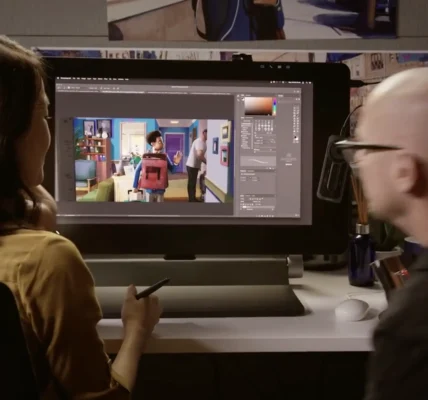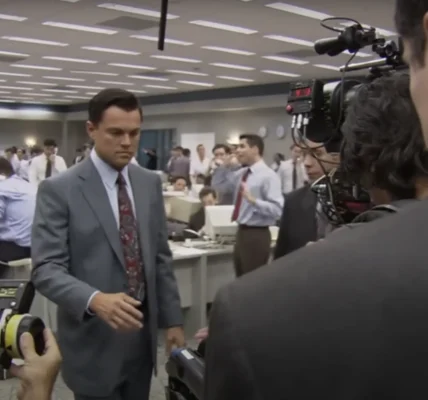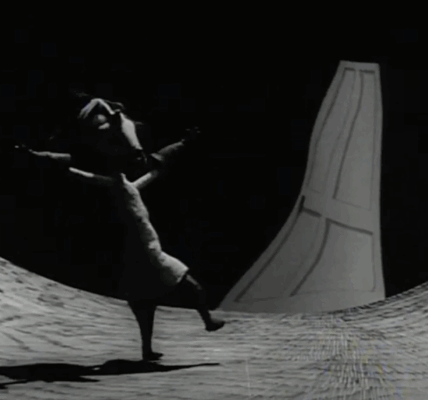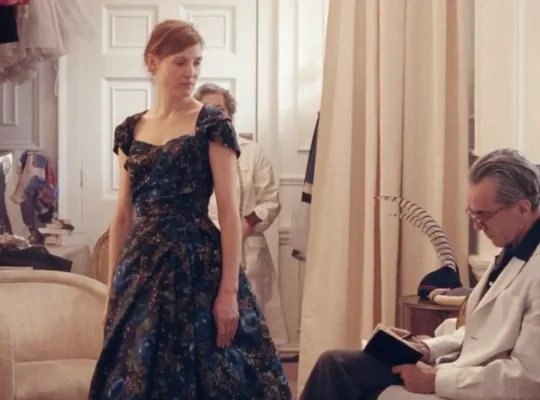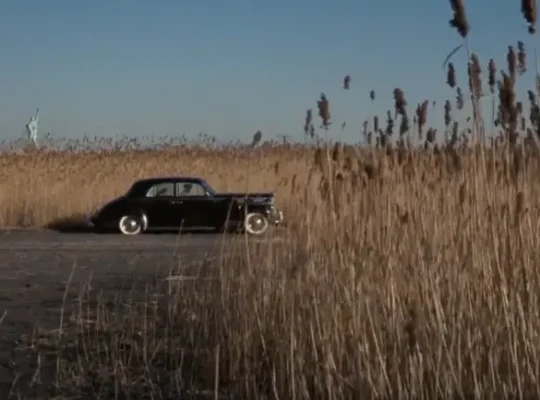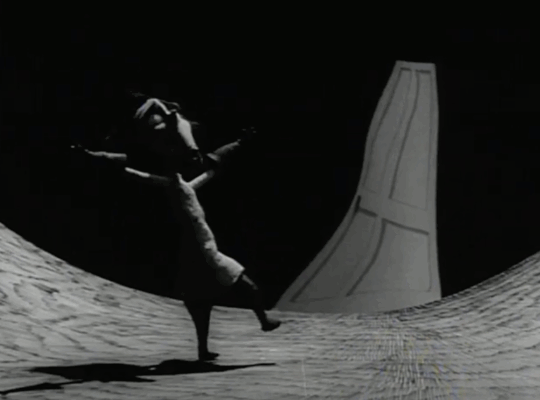Paul Thomas Anderson’s Phantom Thread | An Analysis of the Subtle Studio Scene Between a Shaken Reynolds and a Defiant Alma
Through a recommendation from a friend I met at an independent film gathering,
I ended up watching ‘Phantom Thread‘ — and it completely hit my taste.
Naturally, it made me curious about Paul Thomas Anderson’s other works as well.
I heard that ‘Punch-Drunk Love‘ is really good,
so I’m planning to watch it as soon as possible.
And just in time, ‘One Battle After Another‘ was released recently —
I went to see it last night…
I absolutely loved it — it was such an incredible experience.
It had a completely different tone from Phantom Thread,
and I couldn’t help but admire the director’s range.
(I’ll write a review about it soon!)
Now then — today, I want to focus on one particularly memorable scene from Phantom Thread.
It’s a moment that stirred up a complex mix of emotions: discomfort, subtle tension, irritation, empathy, and even admiration.
The scene takes place in the atelier, where Reynolds, Alma, and Cyril share a quiet yet charged conversation.
(The scene appears around the 35-minute mark.)
<Context for the Scene>
Reynolds Woodcock, the head of the prestigious London fashion house *House of Woodcock*, is a couturier — essentially, a designer who creates bespoke dresses for aristocrats, royalty, and women of high society.
While staying at his country house, Reynolds becomes intrigued by a waitress named Alma and strikes up a conversation with her.
The two grow closer and eventually develop a romantic relationship.
Later, Alma moves to London with Reynolds, becoming both his muse and model within his world of fashion and control.
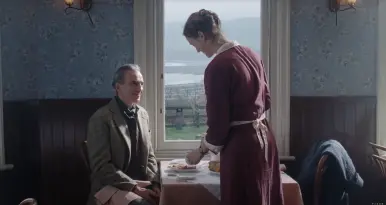
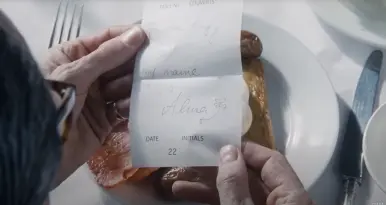
<Scene Overview>
You can find the script for this scene below — feel free to check it out if you’re curious.
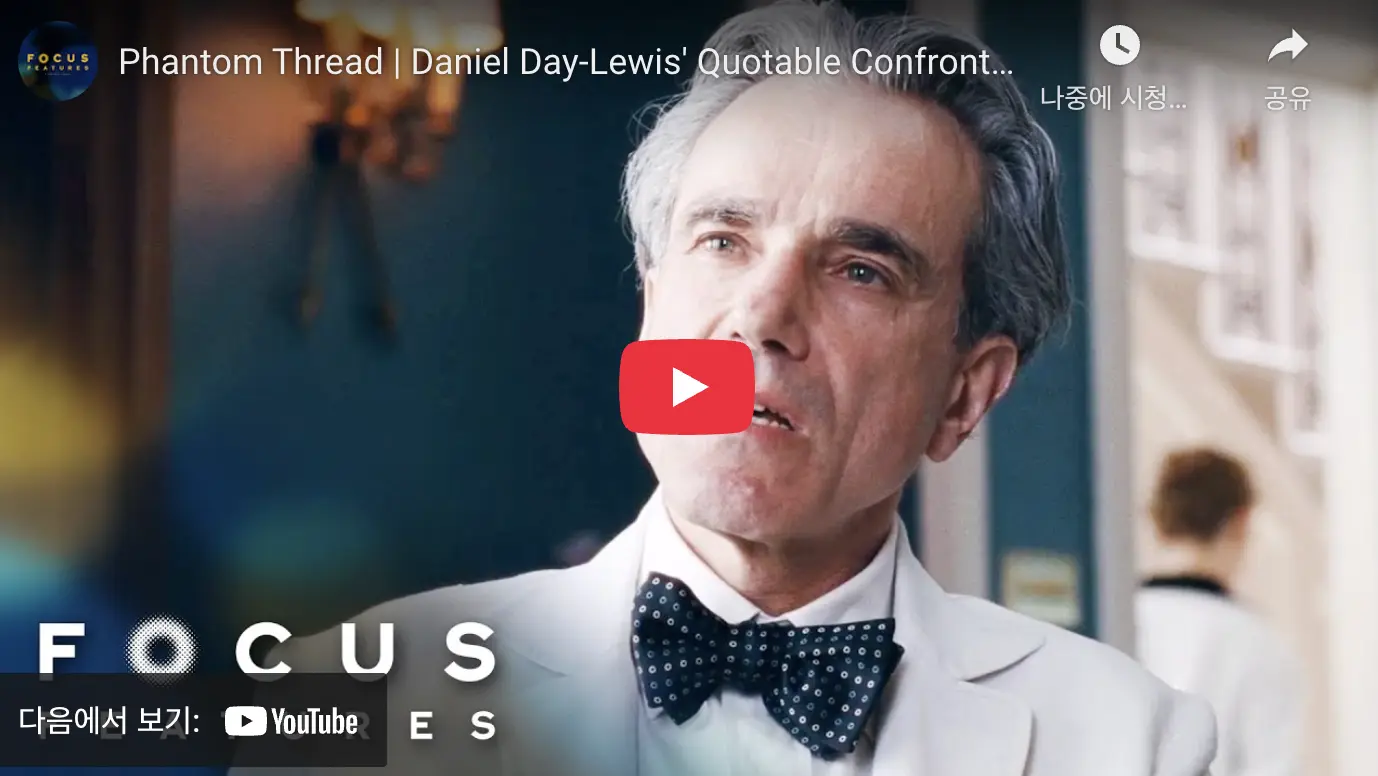
You can find this scene starting at 05:00 in the video above—!_
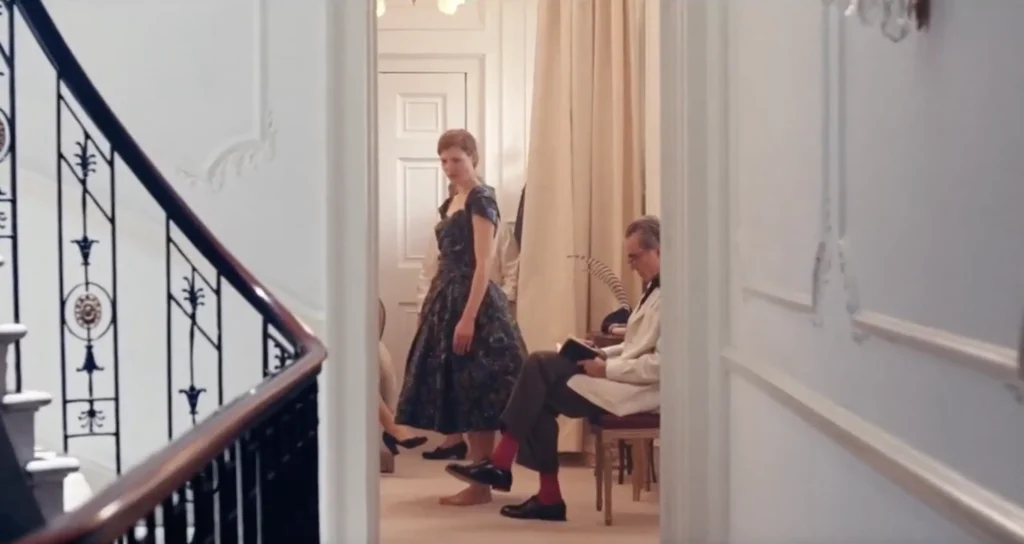
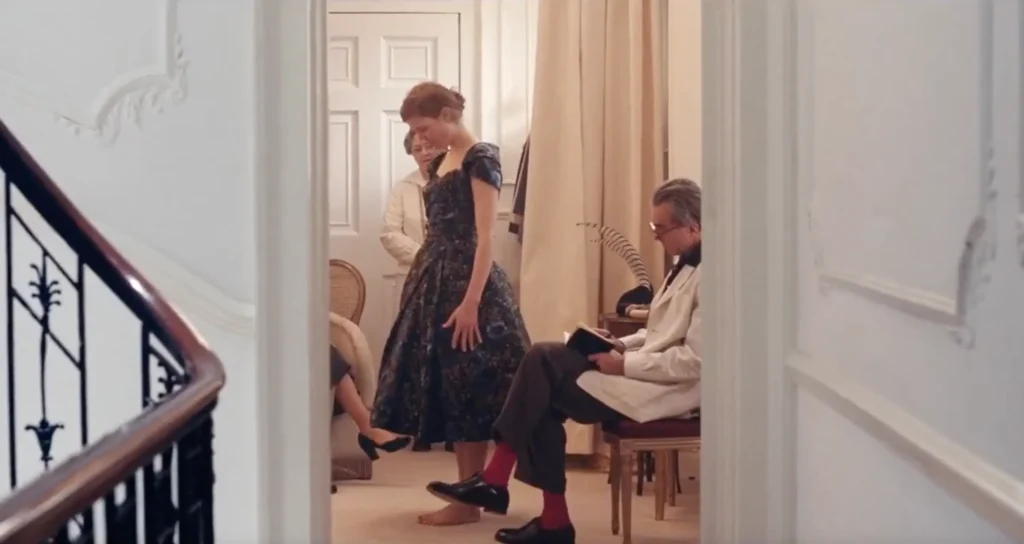
[REYNOLDS]
What is it, Alma?
You look so forlorn today.
[ALMA]
I don’t know… I think I don’t like the fabric so much.
After spending time together on a date, wearing the dress Reynolds made, and having dinner with Cyril, Reynolds and Alma have grown closer.
The next morning, in the atelier, Alma seems unusually discomforted.
Reynolds asks why she is upset, showing some concern.
However, despite his words, he does not meet her eyes, alternating his gaze between his notebook and Alma’s garment, fully focused on his work.
Alma, unwilling to reveal the real reason for her mood, blames the fabric.
Her stiff posture and tense fingertips indicate just how uncomfortable and constrained she feels in this situation.
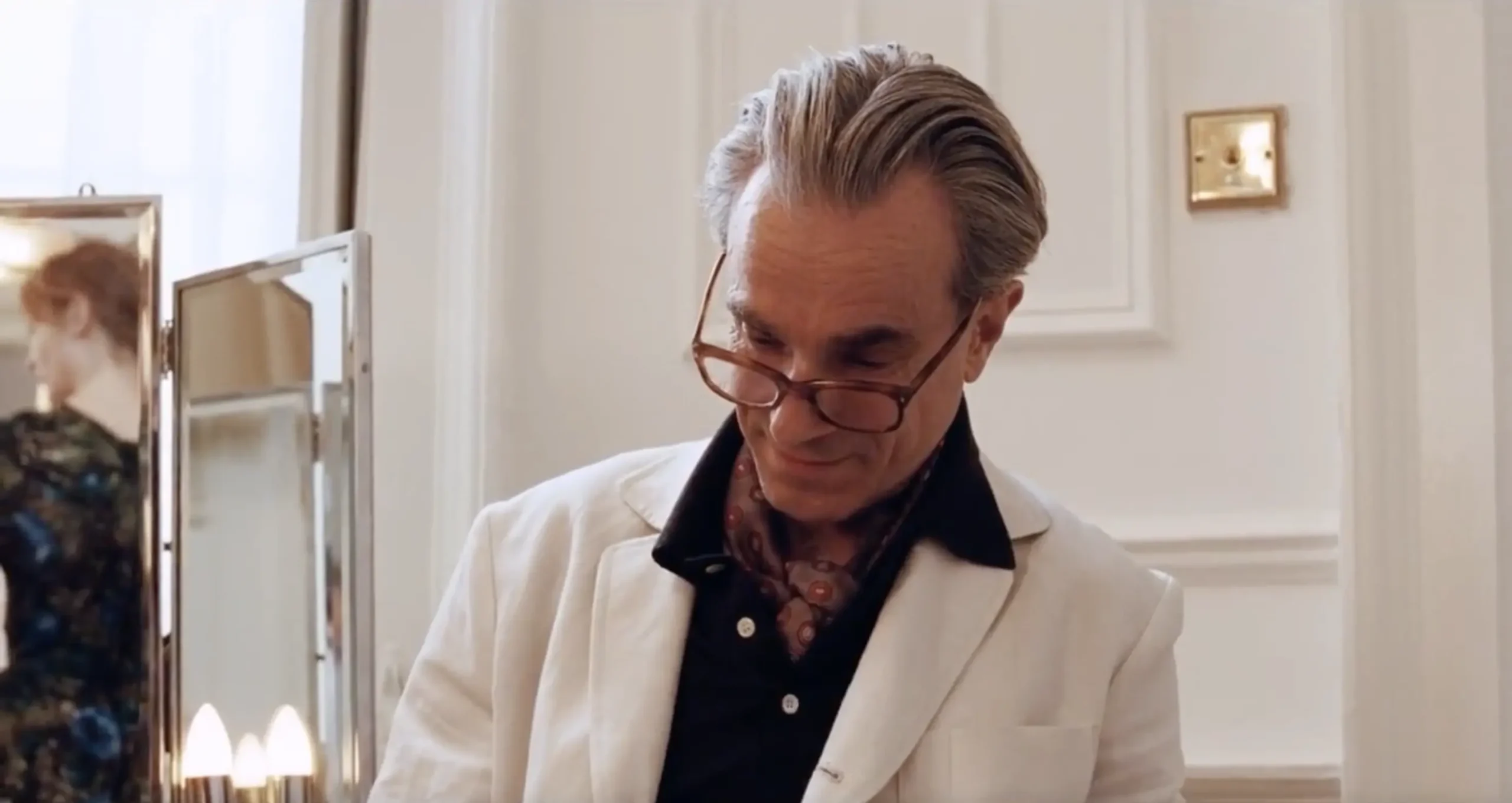
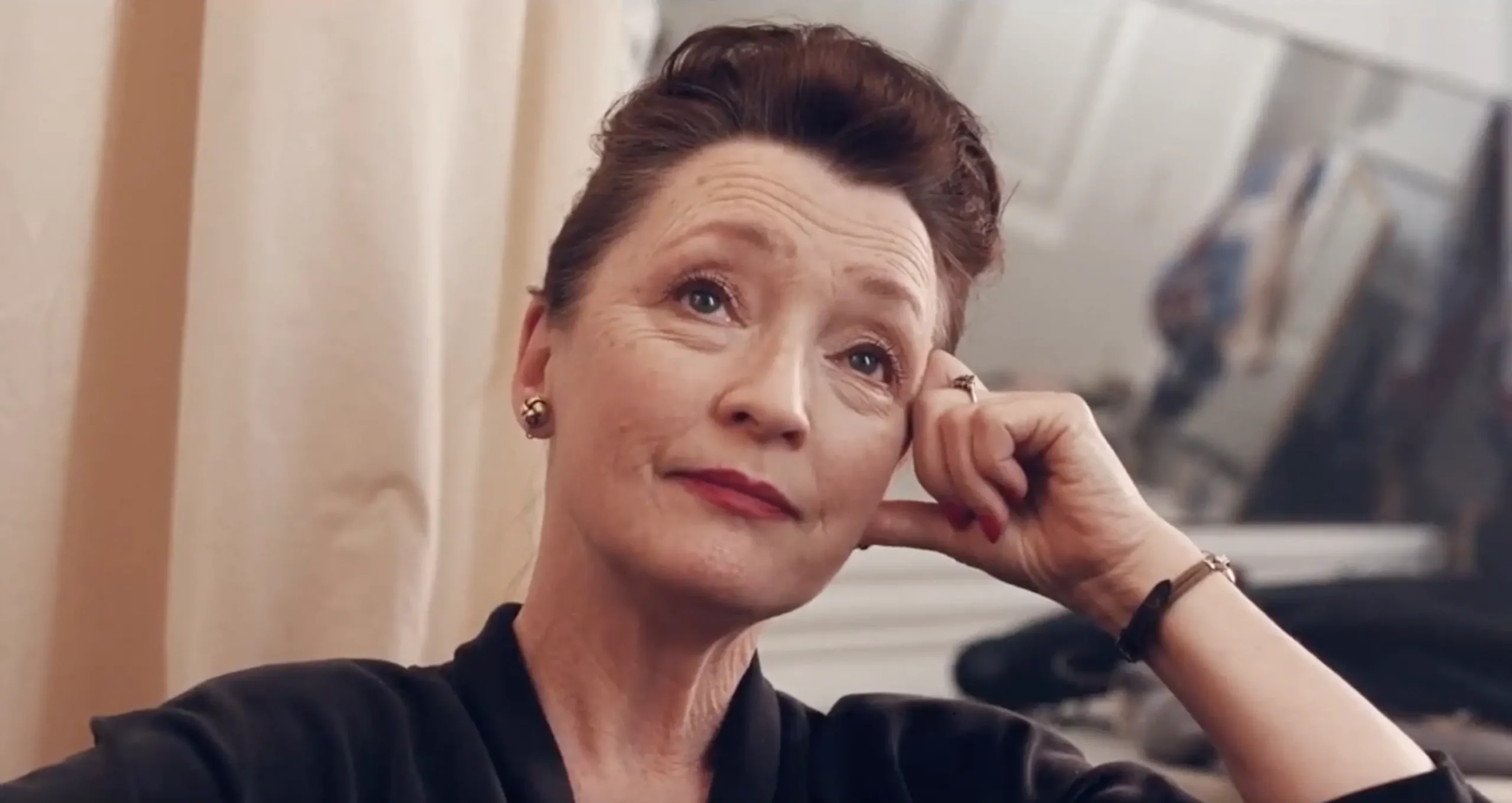
[CYRIL]
Well, Alma, this fabric is adored by the women who wear our designs.
It’s perfect for this dress.
— As Cyril responds to Alma on Reynolds’ behalf, the shot transitions with a J-cut.
Cyril’s voice starts before we see him, creating a subtle contrast with Reynolds’ expression, which seems to silently ask, “How should I explain this to Alma, and where do I even start?”
This close-up captures a brief, delicate moment: Reynolds, a perfectionist and typically resolute, hesitates emotionally while considering how to respond to Alma.
It’s a key shot that conveys his subtle inner conflict.
Next, Cyril, who has no such emotional dilemma, is shown in a close-up delivering the same words with the cool precision characteristic of Reynolds.
In a way, this scene juxtaposes Reynolds, whose feelings toward Alma are evolving into affection, with the version of him who would never have paused to think before meeting her—a version evoked through Cyril.
The sequencing and structure of this scene are remarkable:
Even though Cyril’s voice could accompany a shot of him first, the editors choose to show Reynolds’ close-up first, letting the audience feel his unusual emotional hesitation.
Then, by showing Cyril—who most closely resembles Reynolds’ original personality—they reinforce that Cyril’s response reflects how Reynolds would have reacted before Alma.
In short, this is a thoughtful and effective piece of editing that subtly communicates Reynolds’ minute emotional shifts to the audience.
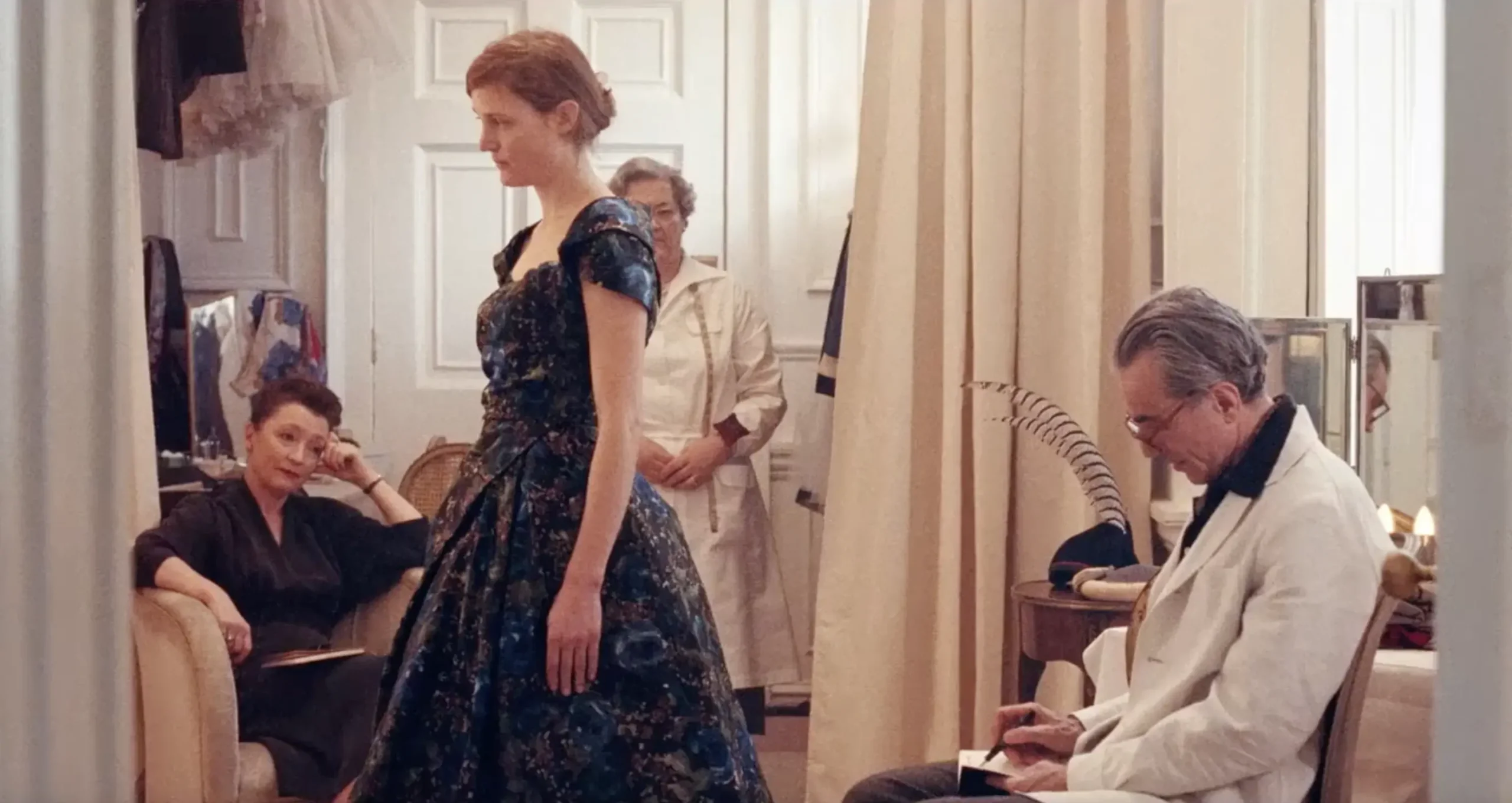
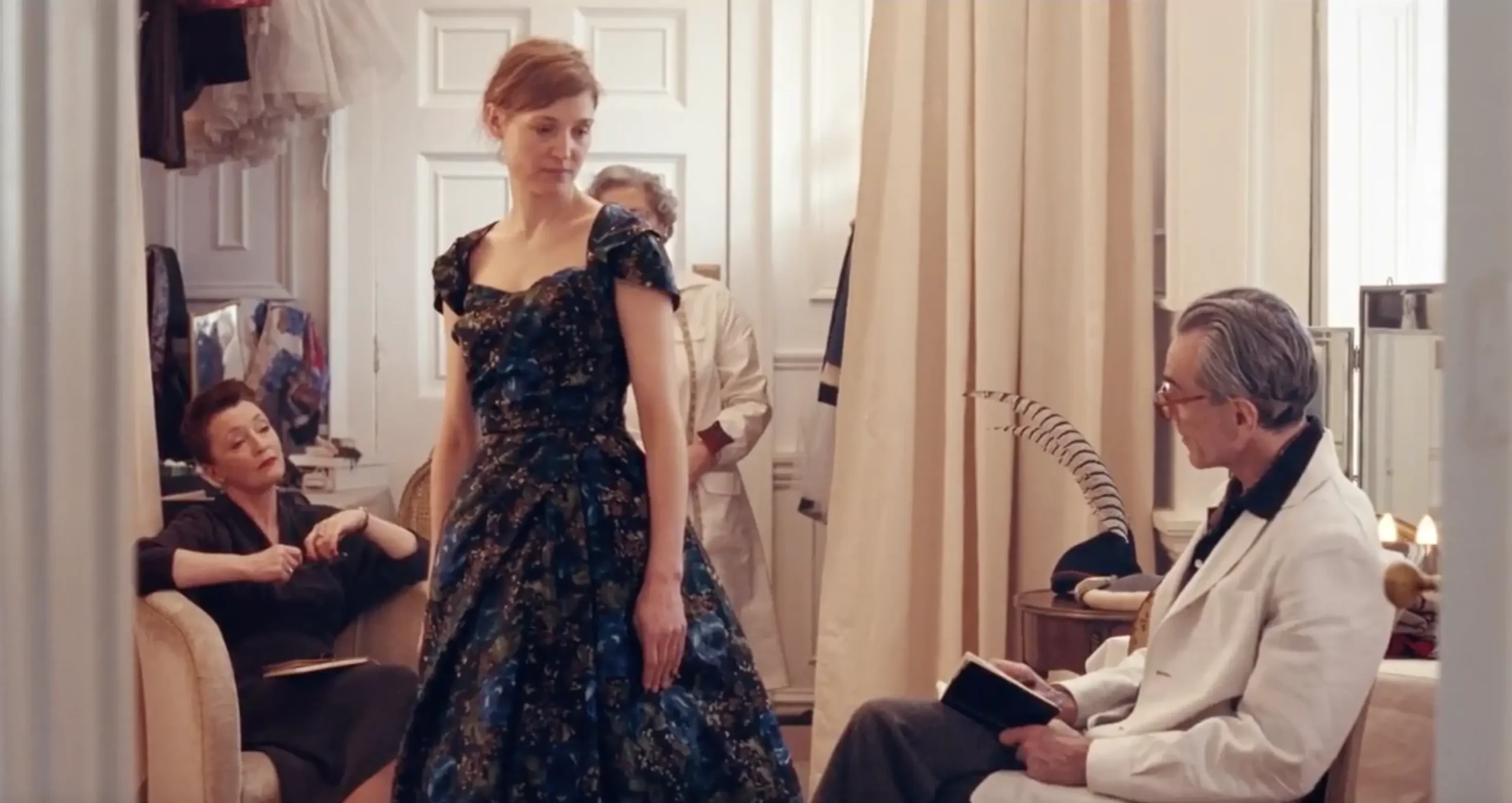
[REYNOLDS]
Cyril is right. Cyril is always right.
And it’s not because the fabric is adored by our clients that makes Cyril right.
It’s right simply because it’s right — because it’s beautiful.
If one day you change your taste, Alma…
Earlier, when Alma mentioned that the fabric made her feel uneasy, Reynolds felt a subtle emotional reaction.
However, as Cyril spoke, he gathered his thoughts and returned to his usual composed self, continuing his words with cold precision.
Reynolds still avoids looking Alma in the eyes as he affirms,
Cyril is right. Cyril is always right.
This line emphasizes that Cyril, who shares Reynolds’ values and convictions about work, essentially speaks for Reynolds himself.
Finally, he adds, “If one day you change your taste, Alma.”
I personally found this line quite unpleasant.
Although Reynolds and Cyril may know more about design and craftsmanship than Alma, taste is a personal matter, separate from technical expertise.
The line feels like a careless imposition of their own preferences, which is why it struck me as uncomfortable.

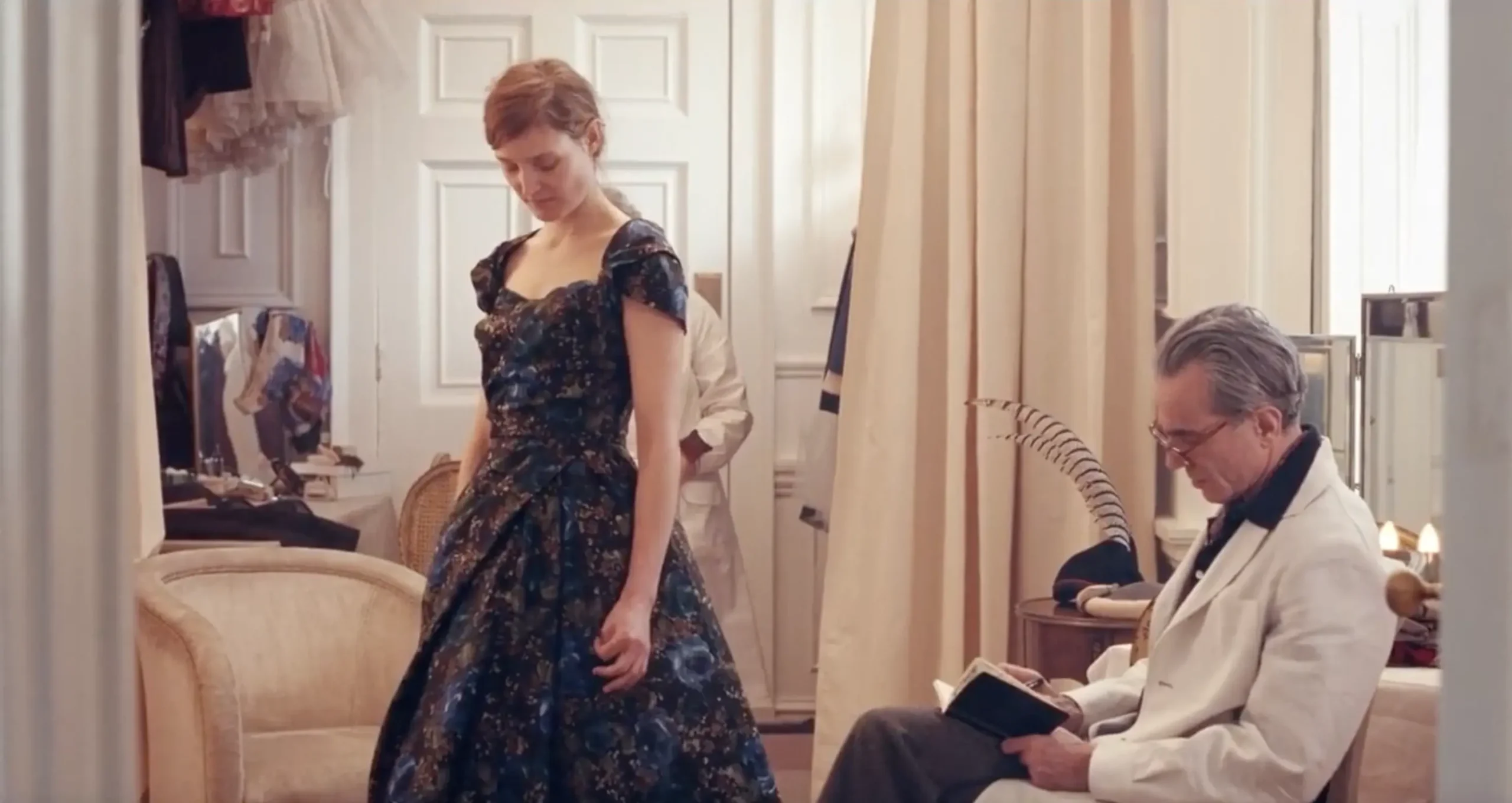
[ALMA]
Maybe not.
[REYNOLDS]
Maybe you have no taste.
Alma, clearly feeling uneasy, responds with “Maybe not.”
Without blinking or showing any hesitation, Reynolds fires back with “Maybe you have no taste.”
His calm yet cutting delivery underscores the tension and power dynamics in their interaction.
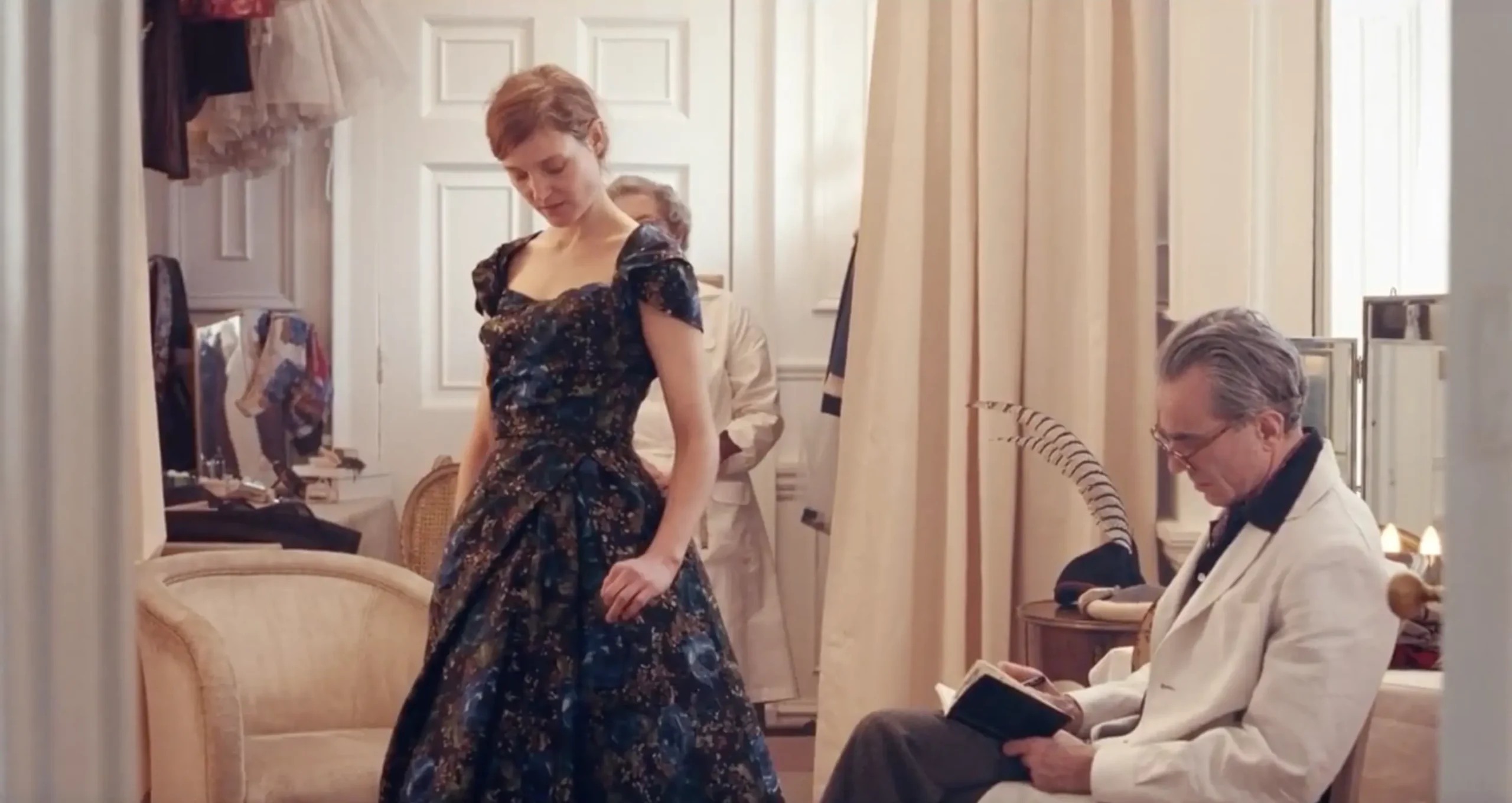
[ALMA]
Maybe I like my own taste.
Here, Alma timidly fiddles with the dress, yet asserts her preference, showing that she won’t simply back down.
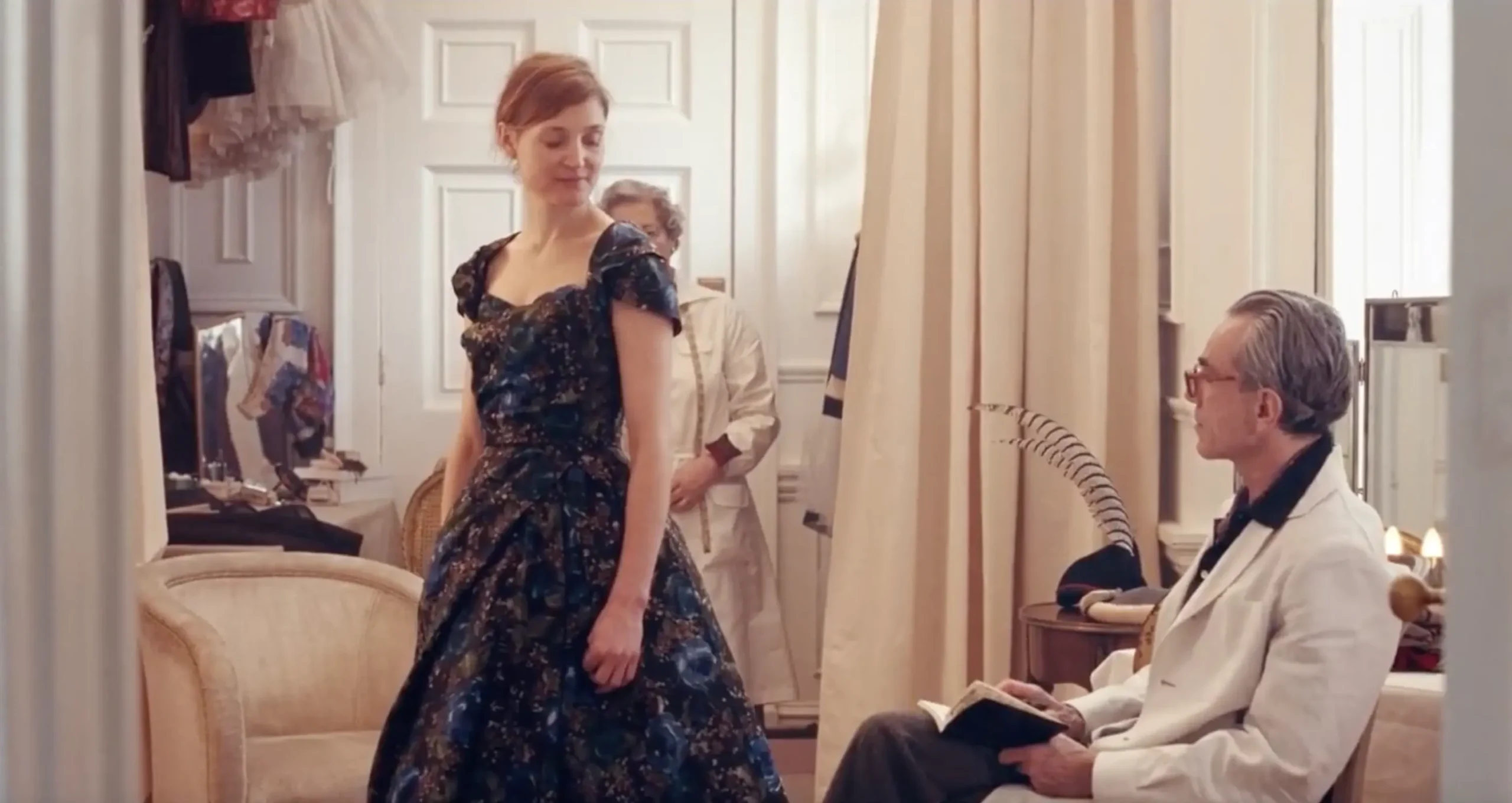
[REYNOLDS]
Just enough to get you into trouble.
[ALMA]
Perhaps I’m looking for trouble.
[REYNOLDS]
Stop!
After exchanging a few more pointed remarks, Reynolds can no longer hold back and says “Stop!”
It’s at this moment that he finally looks Alma in the eyes.
Alma, in response, lets a faint, almost sly smile play at the corners of her mouth.
This scene is memorable not only for its subtle emotional performances and elegant editing, but personally, the discomfort I felt is the main reason it stuck with me.
It comes from Cyril and Reynolds speaking as if there is an absolute truth.
Everyone knows that a diamond has more economic value than silver, but that doesn’t mean you can force someone who prefers silver to like diamonds.
The line “If one day you’ll change your taste” felt especially off-putting to me.
It’s like telling someone who likes silver, “One day, you’ll prefer diamonds over silver.”
This is less about objective value and more about disregarding someone’s personal taste, which is why it left me feeling resistant.
Even after this scene, Alma and Reynolds continue to clash.
Alma, in particular, becomes colder and firmer in standing up to Reynolds.
Throughout this process, you can see how Reynolds changes and acts, and how the conflict resolves.
You’ll understand the full dynamics by watching Paul Thomas Anderson’s Phantom Thread 🙂
<Scene Script>
[REYNOLDS]
What is it, Alma?
.. looking so forlorn about, huh?
[Alma]
I don`t know I…
I think i don`t like the favric so much[CYRIL]
Well, Alma This fabric is adored by the women who wear our design
It’s perfect for this dress[REYNOLDS]
Cyril is right. Cyril is always right
And it’s not because the fabric is adored by our clients that makes Cyril right
It’s right just because it’s right
Because it’s beautiful
If you one day you’ll change your taste, Alma[ALMA]
maybe not[REYNOLDS ]
Maybe you have no taste[ALMA]
Maybe i like my own taste[REYNOLDS]
Just enough to get you into trouble[ALMA]
Perhaps I’m looking for trouble[REYNOLDS]
Stop!

